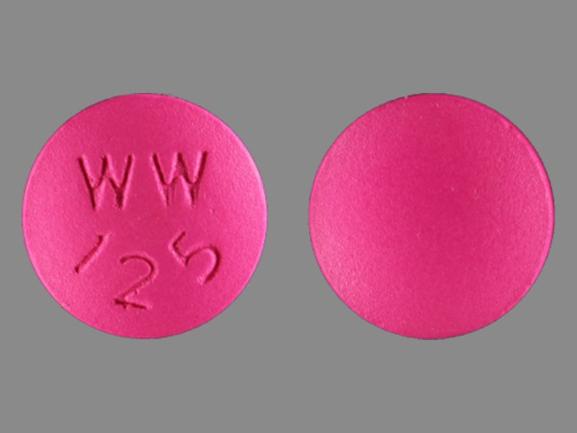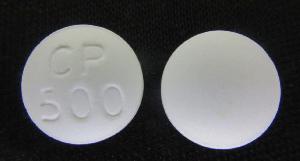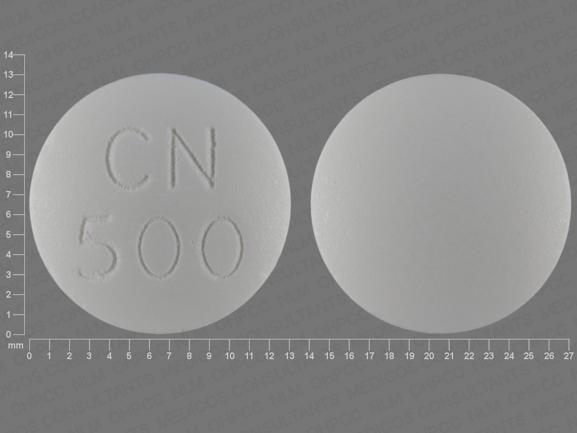
What is Chloroquine?
Chloroquine can be used to treat and prevent malaria. Malaria is a disease that is caused by parasites that enter the body via mosquito bites. It does not work against all malaria strains or in areas where malaria is resistant to a similar medication called hydroxychloroquine. Amebiasis, an infection caused by amoebae, can also be treated with chloroquine. This medication guide does not list all possible uses of chloroquine.
Side effects of Chloroquine
If you experience symptoms of an allergic response (hives or difficulty breathing, swelling on your face or in your throat) or a severe reaction to the skin (fever, a sore throat, burning eyes, skin pain or blistering, or a red or purple rash with blistering or peeling), seek emergency medical attention. Seek emergency medical care if you experience symptoms of serious heart problems: rapid or pounding pulse, fluttering of the chest, shortness of breath, and sudden dizziness.
Chloroquine may cause serious side effects. If you experience:
- A seizure;
- Hearing problems, ringing in the ears
- Symptoms include severe muscle weakness, a lack of coordination, and underactive reflexes.
- Low blood cell counts--fever and chills; fatigue; mouth or skin sores or lesions. Easy bruising. Unusual bleeding. Pale skin. Cold hands and feet. Feeling light-headed.
- Low sugar—headache, thirst, sweating, and irritability; rapid heart rate. Feeling anxious or shaky.
- A serious drug reaction can affect multiple parts of the body. It may cause a rash on your skin, a fever, swollen lymph glands, severe muscle pain, weakness, or unusual bruising.
Chloroquine taken long-term or in high doses can cause irreversible retinal damage. Tell your doctor immediately if you experience:
- Trouble reading, blurred vision, and difficulty focusing
- Distorted vision, poor night vision;
- Changes in your colour perception;
- Hazy or cloudy vision
- Seeing light streaks or flashes;
- Increased sensitivity to light.
Some of the common side effects associated with chloroquine include:
- Nausea, vomiting, diarrhea, and stomach cramps;
- Headache;
- Unusual changes in mood or behaviour
- Hair loss;
- Changes in the hair or skin colour
There may be other side effects. Call your physician if experiencing side effects; to report side effects call 1-800-FDA-1088 or submit them here.
Similar/related drugs
Doxycycline, metronidazole, clindamycin, hydroxychloroquine, Plaquenil, Flagyl, and Cleocin
Warnings
Chloroquine may have dangerous effects on the heart, particularly if you are also taking certain medicines. If you experience rapid or pounding pulses and feel dizzy (as if you may pass out), seek emergency medical care. It taken long-term or in high doses can cause irreversible retinal damage. This could lead to permanent vision issues. If you have had a history of vision problems or retinal damage, chloroquine may not be suitable for you. If you experience any of the following symptoms, stop taking chloroquine immediately and contact your doctor.
Before you take this drug
This medicine should not be used if you have an allergy to chloroquine, hydroxychloroquine, or both. If you've ever experienced vision problems or retinal damage, chloroquine may not be suitable for you. It in high doses or for a long time can cause irreversible retinal damage (the membrane layer that lines your eyeball and helps to produce vision). It could lead to permanent vision issues. People with kidney disease or pre-existing eye conditions are at higher risk of developing retinal damage.
Inform your physician of any of the following issues:
- Anti-malaria medications can cause retinal damage or vision changes.
- Heart disease; heart rhythm disorder (such as long QT syndrome).
- An electrolyte imbalance is a low potassium or magnesium level in the blood.
- Diabetes;
- Liver or kidney disease
- Psoriasis;
- Alcoholism;
- Porphyria is a genetic disorder that affects the nervous system or skin.
- A genetic enzyme deficiency called glucose-6-phosphate dehydrogenase (G6PD) deficiency.
Inform your doctor if you are pregnant or planning to become pregnant. Malaria can cause serious illness and death in pregnant women. There is no way to know if chloroquine can harm a baby. Ask your doctor if you're pregnant about the risk of travelling to places where malaria is prevalent (such as Africa and South America). While using chloroquine, you should not breastfeed.
How to take Chloroquine?
Read all instructions or guides that come with your medication and follow all directions. Follow the directions on the label. Take chloroquine every week, on the same date. Take the medication 2 weeks prior to entering a malaria-prone area. Continue taking the medication during your stay in the area and for at least 8 weeks after you leave. It can be used to treat malaria. It is given in two doses: one large dose and then smaller doses over the next two days. Amebiasis is treated with chloroquine. It's given at a high dose to start, followed by a lower dose over 2 or 3 weeks. Other medications may be prescribed to prevent infection.
The dose of chloroquine is based on the weight of the child. If your child loses or gains weight, the dose needed may change. Even if you feel better quickly, continue to take chloroquine as prescribed. If you are experiencing fever or any other symptoms after or during a trip to an area with malaria, call your doctor immediately. To prevent malaria-causing mosquito bites, wear protective clothing and use insect repellents. You can also place mosquito nets around your bed. Malaria is not 100% preventable or treatable by any medication. If you experience fever, nausea, or diarrhoea while on treatment, talk to your doctor. You may need to undergo frequent medical and vision tests while using chloroquine. Store away from moisture, heat, and light at room temperature.
What happens if I miss the dose?
If you miss a dosage, call your doctor to get instructions.
What happens if I overdose?
Call Poison Help at 1-800-222-1222 or seek emergency medical care. A chloroquine overdose can be deadly and should be treated immediately. Overdose symptoms include: drowsiness or vision changes; seizures; a slow or weak pulse; rapid heartbeats; and pounding heartbeats. Other symptoms are sudden dizziness, fainting (or even stopping breathing), shortness of breath, or sudden dizziness. Keep chloroquine away from children. An accidental chloroquine ingestion can be fatal for a child.
What should be avoided?
This medication may cause blurred or impaired vision and affect your reaction. Before engaging in potentially risky activities or driving while taking any medicine, make sure you know its effects and have assessed their impact on yourself. Avoid taking antacids or kaolin-pectin (kaolin-pectin) within 4 hours of the time you took chloroquine.
Interaction with other drugs
Chloroquine may cause serious heart problems. You are at greater risk if you use other medications for heart problems, high blood pressure, HIV, cancer, and mental illness. Take your ampicillin dose 2 hours before or 2 hours after taking the antibiotic.
Tell your doctor about your other medications, including:
- Cimetidine;
- Cyclosporine;
- Mefloquine;
- Praziquantel;
- Tamoxifen is a drug that can be used to treat breast cancer.
- Insulin or oral diabetes medication
This list is incomplete. Other drugs, such as vitamins, herbal products, prescription and over-the-counter medicines, and prescription medications, may also affect chloroquine. This list does not encompass all possible interactions among drugs.







